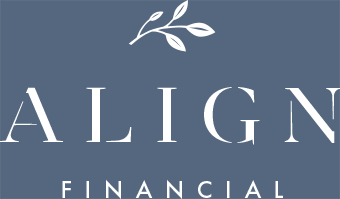Estate planning is about transferring your assets in a way that’s both tax-efficient and legal. Yet it’s also about communicating your values, shaping your legacy, and shielding your loved ones from unnecessary stress during challenging times.
Unfortunately, estate planning can feel daunting, complicated, and even a bit morbid, which is why many people postpone it or overlook it entirely. This isn’t just risky; it deprives both you and your loved ones of the clarity and peace of mind that come from proper planning.
As your age and net worth increase, having a sound estate plan that reflects your personal values and financial objectives becomes increasingly important. That’s why it’s critical to avoid mistakes that can jeopardize your intentions.
6 Common Estate Planning Mistakes to Avoid
#1: Not Having an Estate Plan
The most common mistake people make when it comes to estate planning is not having a plan at all. In fact, only 34% of Americans have a will, according to a 2023 Caring.com survey. This can be problematic for a variety of reasons.
First, in the absence of a will or estate plan, the state will distribute your assets according to intestacy laws. The outcome may not align with your wishes, causing unnecessary stress and discord among your heirs.
Meanwhile, the probate process can be lengthy, expensive, and emotionally draining. During this time, your beneficiaries may not have access to the assets in your estate, potentially keeping them from paying outstanding debts, medical bills, or funeral costs.
Moreover, probate is a public process. That means your assets and beneficiaries become part of the public record, which can create additional challenges for your estate and loved ones.
#2: Not Planning for Incapacity
A comprehensive estate plan doesn’t just include instructions for how to distribute your wealth upon your death. It can also protect you if you become incapacitated.
Incapacity planning is a crucial component of estate planning in that it allows you to designate a trusted individual to make financial or health-related decisions on your behalf if you’re unable to do so yourself. Without proper planning, your loved ones may face legal hurdles, which can lead to delays in medical treatment or financial decisions during a critical time.
As you create your estate plan, the following documents can help ensure your affairs are handled according to your wishes should you become unable to manage them yourself.
- Durable Power of Attorney: This document allows you to appoint someone you trust to manage your financial and legal affairs if you become incapacitated. This may include paying your bills, managing your investments, or even selling property on your behalf.
- Living Will (Advance Healthcare Directive): A living will outlines your wishes regarding medical treatment if you become terminally ill or are in an end-of-life situation and cannot communicate your wishes. It may include instructions on pain management, resuscitation, artificial life support, and other medical interventions.
- Healthcare Power of Attorney (Healthcare Proxy): This document allows you to appoint someone to make medical decisions on your behalf if you’re unable to do so.
- HIPAA Authorization: A HIPAA Authorization allows you to designate individuals who can access your medical records, which is especially important if you become incapacitated.
#3: Overlooking Potential Tax Implications
Taxes can significantly affect the amount of wealth you ultimately transfer to your beneficiaries. Therefore, a well-crafted estate plan considers the impact of estate taxes, gift taxes, and generation-skipping transfer (GST) taxes and includes strategies to minimize what your estate and heirs may owe.
First, there’s the estate tax, also known as the “death tax.” If your estate exceeds a certain value, a significant portion could go to the government instead of your heirs.
While the federal estate tax exemption is currently high ($12.92 million per individual in 2023), smaller estates may encounter the estate tax at the state level. Currently, 17 states and the District of Columbia, including Minnesota, impose an estate or inheritance tax.
In addition, the federal exemption is scheduled to revert to its previous amount of $5,000,000—or $7,000,000 after adjusting for inflation—in 2026. That means careful tax and estate planning will become even more important for many wealthy Americans.
Meanwhile, you may be subject to gift taxes if you plan to transfer part of your wealth during your lifetime. By strategizing the amount and timing of your gifts, you can stay below your annual exclusion and lifetime exemption amounts and avoid triggering a tax liability.
Lastly, if you plan to leave assets to your grandchildren or great-grandchildren, you may need to consider the GST tax. This is a federal tax that can apply when you transfer wealth to individuals more than one generation below you.
These are just a few examples of taxes that can erode the value of your estate in the absence of proper planning. Since tax laws tend to be complex and frequently change, it’s a good idea to consult with an expert to avoid costly missteps.
#4: Forgetting to Update Your Estate Plan
Life is full of changes, including marriages, divorces, births, and deaths. As your life evolves, so should your estate plan. Otherwise, an out-of-date estate plan can lead to outcomes that don’t reflect your intentions. For example, if you’ve gone through a divorce but your will still lists your ex-spouse as your primary beneficiary, they could end up inheriting your assets.
In addition, tax laws can change over the course of your lifetime, sometimes dramatically. Failing to update your plan periodically can cost you valuable tax planning opportunities that may preserve more of your estate for your heirs.
Therefore, it’s crucial to review and revise your estate plan regularly—especially after major life events. This helps ensure your plan remains in alignment with your life and the current legal landscape.
#5: Neglecting to Name or Update Beneficiaries
Your will isn’t the only document that outlines the distribution of your assets. Assets like life insurance policies, retirement accounts, and certain types of bank accounts have separate beneficiary designations, which override instructions in a will or trust.
Naming and regularly updating your beneficiaries to align with your wishes is paramount to avoid unintended consequences like assets going to the wrong recipients. For example, if you named a sibling as a beneficiary on a retirement account and later had children, your children won’t receive those assets unless you update your beneficiary designation.
Though naming beneficiaries on your accounts is a simple step, it’s often overlooked during the estate planning process. Be sure to review your beneficiary designations regularly alongside your estate plan to account for life changes and other factors that may influence your choices.
#6: Trying to DIY Your Estate Plan
With technology and artificial intelligence (AI) becoming more sophisticated every day, it can be tempting to take a do-it-yourself approach to estate planning. Unfortunately, a poorly drafted plan may cause more problems than it solves, including costly oversights, errors, and legal issues.
Moreover, estate planning is complex and unique to everyone’s individual situation. While DIY estate planning tools may be readily available, they often oversimplify the process, making their output less valuable. For example, they may not account for state-specific laws or nuanced family dynamics.
Investing in professional guidance helps ensure your estate plan is complete and legally sound. It can also provide you with peace of mind knowing your legacy is secure.
Align Financial Can Help You Achieve your Estate and Legacy Planning Goals
At the end of the day, your estate plan is far more than a series of legal documents. It’s an act of love and responsibility towards your family and future generations. By carefully considering each component of a comprehensive estate plan, you can ensure your wishes are honored, your assets are protected, and your loved ones are well cared for long after you’ve left this world.
While the estate planning process may seem complex, keep in mind you don’t have to navigate it alone. At Align Financial, we strive to align every aspect of your financial life with your personal values and goals, including your end-of-life wishes.
To see if we may be the right guide for your financial and estate planning journey, please contact us to schedule an introductory meeting.













